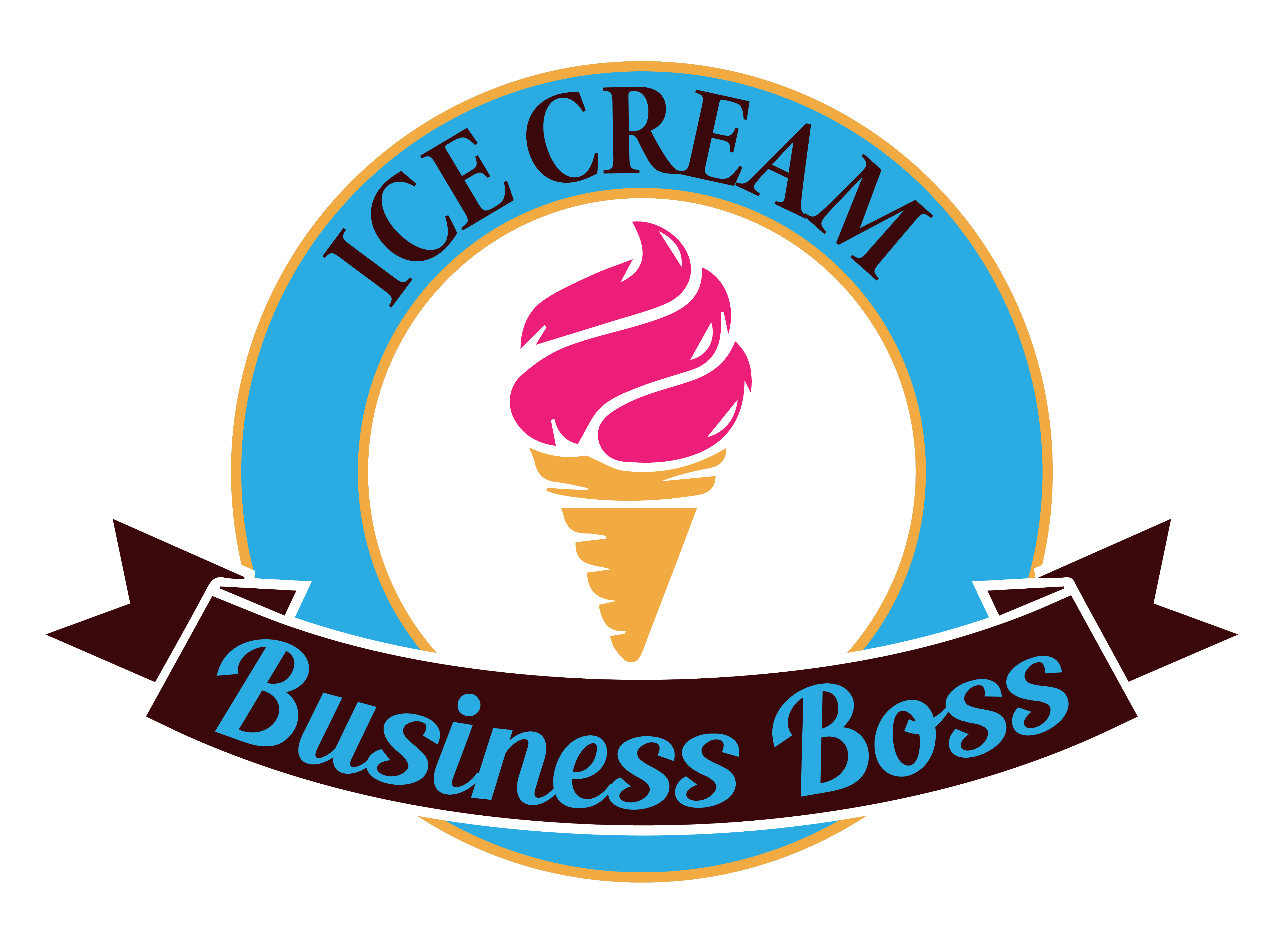Imagine a world where the wonderful aroma of freshly churned ice cream wafts through the air and the flavor possibilities are as limitless as your imagination. If you’re thinking about creating your own ice cream production company, this scenario may be your reality. Ice cream, with its timeless attractiveness and universal appeal, presents an enticing prospect for entrepreneurs who enjoy frozen treats.
To start an ice cream manufacturing business, you should research market trends, draft a business plan, secure necessary licenses, choose a suitable location, invest in equipment, develop unique recipes, and focus on branding and distribution. Ensure consistent quality and innovation for sustained growth.
In this article, we take a tasty journey into the world of ice cream manufacturing, delving into the methods and tactics required to turn your passion into a flourishing business. So, if you’re ready to scoop up your dreams and go on the route to frozen dessert entrepreneurship, come along with us as we reveal the secrets of starting an ice cream manufacturing firm that’s as sweet as victory itself.
Market Research: The Scoop on Growth
It’s essential to delve into the complex world of market study before starting your ice cream-making journey. The key to achievement in your pursuits is having a thorough awareness of the competitive landscape. Your cornerstone in doing this is thorough market research, which sheds light on crucial elements including developing trends, target demographics, and the competitive landscape.
Gather information about consumer preferences to start this exploratory approach. Examine the most popular tastes, look into dietary trends like the rise in vegan and lactose-free options, and discover the types of packaging that appeal to your potential clients. Use a variety of research techniques, such as questionnaires, active involvement in trade events, and reading business studies, to gain insightful knowledge.
Examining regional quirks and cultural differences is equally important. From one place to another, ice cream preferences and consumption patterns can differ noticeably. To ensure a strong basis for your entry into the ice cream industry, perform thorough research to understand these regional specificities as they will have a huge impact on your product development and marketing strategy.
Drafting a Solid Business Plan
The key to achievement in the ice cream production sector is a carefully developed business plan. It acts as a navigational guide for you as you navigate the complex world of entrepreneurship. Like a compass, your strategy should clearly define your mission, vision, and goals to provide you with direction. It must also provide a thorough study of your target market and competitors, illuminating the future course.
You must concisely and clearly describe your product options, price strategy, and sales estimates within this plan. This thorough vision serves as your company’s compass and showcases your commitment and strategic thinking to potential lenders.
The financial section of your business strategy is equally crucial. It should provide a thorough breakdown of initial expenditures, ongoing costs, and revenue projections. This financial road plan guarantees that you stay financially stable and on course to accomplish your goals.
Securing Necessary Licenses and Permits

Maintaining strict adherence to legal and safety compliance at all levels of government is necessary for operating an ice cream manufacturing firm. You are responsible for navigating the complex maze of regional, national, and municipal requirements to make sure your operations are both legal and safe. Obtaining the necessary licenses and permits is essential to this process and cannot be skipped.
These crucial qualifications frequently include licenses for food production, inspections by the health department, and rigorous adherence to strict food safety requirements. Your company can be operating on shaky ground without these. It’s crucial to conduct thorough due diligence to avoid potential problems and guarantee the future of your business.
Contact your local government offices and business associations first, since they can offer useful advice on the regulations that apply to your region. These groups act as crucial resources that illuminate the way to compliance. Failure to comply with these regulatory requirements can have serious repercussions, such as high fines, forced closures, and even legal action, all of which can permanently harm your company’s brand and financial health.
Check out this article to learn more about starting a rolled ice cream business.
Choosing a Suitable Location
Making the ideal choice for the site of your ice cream manufacturing plant is crucial since it has the potential to determine how thriving your company will be. Since it establishes the framework for all that comes after, this decision is comparable to selecting the ideal stage for a performance.
The main factor is proximity to suppliers. Being local to your ingredient suppliers can cut down on shipping expenses and delays, resulting in a smooth production process. The efficient transfer of raw materials and completed goods is facilitated by easy access to transportation hubs, such as highways or ports, enabling prompt deliveries to retailers and customers.
The facility you have picked must follow zoning requirements for your business operations to be compliant with local laws. The facility must have enough capacity to support efficient production, storage of raw materials and completed goods, and potential future expansion as your company expands.
Think about your target market’s convenience as well. The location of a shop outlet might be strategically chosen among busy streets, popular tourist locations, or business districts. Such places can encourage brand visibility and draw a regular stream of potential buyers. Proximity to nearby eateries and ice cream stores helps streamline distribution and foster fruitful business relationships.
Investing in Equipment

The specialized tools used to create mouthwatering frozen treats are the foundation of every ice cream manufacturing operation. These crucial devices ensure quality and consistency with each scoop by coordinating the symphony of flavors and textures that customers enjoy.
Batch freezers, which are in charge of converting liquid combinations into creamy frozen confections, occupy center stage in the ice cream manufacturing process. A necessary stage in the preparation of food, pasteurization plays a crucial function in maintaining the safety of your product by getting rid of dangerous germs and pathogens. Master blenders combine ingredients to perfection, while cold storage facilities protect the completed product’s integrity and keep it fresh until it is delivered to hungry consumers.
The size of your activities and the range of items you intend to sell are inextricably linked to the type and capacity of this specialist equipment. It’s critical to choose machinery that is compatible with your production objectives and expansion forecasts.
Even while the initial cost of purchasing high-quality equipment can be considerable, think of it as a crucial long-term investment that will pay off handsomely as your company grows. Dependable equipment protects your brand and customer happiness by minimizing downtime and ensuring constant product quality.
Developing Unique Recipes
Every thriving ice cream manufacturing business is built around the soul-stirring symphony of flavors included in its recipes. What separates your brand and maintains you in sweet rivalry with competitors is this dynamic and ever-evolving process. Making distinctive and delicious flavors becomes a never-ending quest that appeals to your customers’ palates and hearts.
Start by examining a broad spectrum of ingredients, from time-honored classics to the unusual and innovative, before setting out on this flavor-filled voyage. Consider offering gluten-free treats or giving health-conscious customers low-sugar options when catering to a variety of dietary needs.
The seasonal cycle can serve as your inspiration, inspiring you to create limited-edition releases that fascinate buyers and honor the cyclical nature of the year. Working together with accomplished chefs or food scientists can take your products to a new level and guarantee that each batch reflects the best possible taste and texture.
The collective palate of your audience, though, is a key stop on this voyage. By conducting taste tests, involve them in your creative process and get input from a wide range of people. This not only aids in perfecting your recipes but also builds client loyalty and a sense of community among them, who will enjoy taking part in your culinary research.
Focusing on Branding and Distribution
In the ice cream production industry, branding is the magic wand that may make your company stand out from the competition in a crowded market. Your business will become unforgettable because of the story, the visual poetry, and the essence, which will help you build relationships with consumers that go beyond simple business dealings.
Your first stroke on this distinctive canvas should be a strong brand identity. This includes a captivating logo that captures your soul, eye-catching packaging, and a brand narrative that knits together your values and product excellence. This brand should not only be physically beautiful but also accurately reflect the values of your business, acting as a beacon to attract clients who share your values.
Diversification is essential for distribution. Beyond running your retail establishment (if appropriate), establish alliances with nearby ice cream parlors, eateries, and grocery stores. You can reach a wider audience by doing this, putting your delicious goods in the path of various customer categories. Don’t ignore the digital world; online sales and delivery services can cross regional boundaries and provide accessibility to ice cream lovers everywhere.
However, your brand’s journey doesn’t end at the checkout screen or store shelf. To generate buzz about your company, get involved in the digital arena through social media and digital marketing. Engage with your clients, tell them about your business, and build an ice cream-loving following. These channels serve as the megaphone through which your brand’s sweet symphony reaches hungry ears in the age of digital connection.
Wondering what it takes to start your ice cream business? Visit our article to learn the answer.
Ensuring Consistent Quality

Consistency in product quality is the most important factor in the highly competitive ice cream market. It knits client loyalty, fosters trust, and raises your brand to the pinnacles of greatness. It is the golden thread. To achieve this consistency, your production process must be fully integrated with a comprehensive dedication to quality control.
A thorough analysis sets the course of the voyage in motion. Each ingredient should be thoroughly tested and evaluated to make sure it satisfies your high criteria for taste, texture, and safety. This entails finding premium dairy, flavorings, and additives that work well together in your dishes.
Keeping a close eye on your equipment is also crucial. To ensure that machinery operates at its highest level of efficiency, regular maintenance and monitoring procedures should be in place. By doing this, the possibility of production hitches that can jeopardize the quality of your product is reduced.
The focus must always be on hygiene. To protect against pollutants and maintain food safety standards, implement stringent sanitation practices in your plant. To uphold these strict hygiene requirements, routine inspections and audits should be conducted.
Consistency depends on a workforce that has received proper training. To make sure that staff members follow standardized recipe and production guidelines, provide continual training. In your pursuit of perfection, taste tests and consumer feedback should act as compasses directing you to spot and swiftly address any faults that may occur.
Innovation for Sustained Growth
Innovation is the key to not just staying relevant but also sustaining your company’s growth in the competitive world of ice cream manufacturing. It’s what propels your brand forward in the thoughts of customers while titillating their taste buds with novel and interesting goods.
An unquenchable desire for flavors, formats, and packaging is where innovation starts. Always venture into unexplored terrain, whether it is through the creation of original flavor concoctions, testing out unusual ingredients, or experimenting with novel product formats like pints, cones, or bars. Keep a close eye on developing food trends to create industry trends. Whether it’s the pursuit of healthier substitutes or the rising demand for organic components, modify your offers to fit changing consumer tastes.
Another great way to spur innovation is by interacting with your customers. To get information and understand how their tastes and desires are changing, establish avenues for communication and feedback. Launch seasonal or limited-edition flavors that cause a buzz and a feeling of exclusivity, promoting repeat purchases and building a foundation of devoted customers.
Take smart risks without worrying about failing. Try out audacious and cutting-edge concepts to distinguish yourself from the competition. These initiatives might result in innovations that reinvent your brand and enthrall new target markets.
Frequently Asked Questions
What is the cost of starting an ice cream manufacturing business?
The cost of starting an ice cream manufacturing business can vary greatly based on factors such as the size of your operations, location, and equipment selection. You might anticipate to invest anywhere between $50,000 and $500,000 or more on average.
Smaller operations or home-based enterprises may require less upfront cash, but larger facilities with specialized equipment may necessitate a higher investment. To accurately evaluate your startup costs, you must establish a detailed business strategy.
Do I need prior food industry experience to establish an ice cream production business?
While prior experience in the food sector is advantageous, it is not necessarily required. Many ice cream manufacturers began their enterprises with a love of ice cream and an eagerness to learn. However, understanding food safety rules, manufacturing procedures, and flavor creation might provide you with a competitive advantage. To increase your expertise, consider taking classes, attending workshops, or obtaining guidance from industry professionals.
How can I distinguish my ice cream production company in a crowded market?
Focus on distinction in a competitive ice cream market by offering unique flavors, high-quality ingredients, and creative product offers. Consider catering to nutritional requirements such as vegan, gluten-free, or low-sugar alternatives.
Creating a strong brand identity, engaging with customers on social media, and providing good customer service may all aid in the creation of a loyal client base. Introducing new flavors and limited-edition releases regularly will keep your customers interested and returning for more.
The information provided by IceCreamBusinessBoss.com (“The Site”) is for general informational purposes only. All information on the Site is provided in good faith, however, we make no representation or warranty of any kind, express or implied, regarding the accuracy, adequacy, validity, reliability, availability, or completeness of any information on the Site. Under no circumstance shall we have any liability to you for any loss or damage of any kind incurred as a result of the use of the Site or Reliance on any information provided on the Site. Your use of the Site and your reliance on any information on the Site is solely at your own risk. This blog post is for educational purposes only and does not constitute legal advice. Please consult a legal expert to address your specific needs. Terms and Conditions.

Hi! I am Shawn and I am a happy individual who happens to be an entrepreneur. I have owned several types of businesses in my life from a coffee shop to an import and export business to an online review business plus a few more and now I create online ice cream/gelato business resources for those interested in starting new ventures. It’s demanding work but I love it. I do it for those passionate about their business and their goals. That’s why when I meet a ice cream/gelato business owner, I see myself. I know how hard the struggle is to retain clients, find good employees and keep the business growing all while trying to stay competitive.
That’s why I created Ice Cream Business Boss: I want to help ice cream and gelato business owners like you build a thriving business that brings you endless joy and supports your ideal lifestyle.

